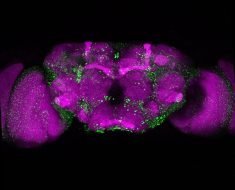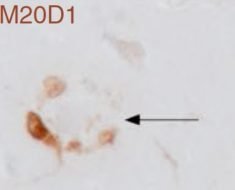Vulvar cancer is diagnosed with a complete medical history, physical examination followed by laboratory and imaging studies.
Most cancers need to be staged into various stages and classes which determine their method of treatment and also determine the chances of cure and survival after therapy.
Detailed medical history
Diseases in the past, especially lichen sclerosus as well as Human Papilloma virus (HPV) infection, in the past is significant.
Diagnosis of Vulvar intraepithelial neoplasia (VIN) is also important since around 80% of women with VIN go on to develop vulvar cancer.
Physical examination
A detailed physical examination is performed. Pelvic and vulvar examination helps determine the site and extent of local spread of the cancer. Presence of lumps, moles, warts, raised patches etc. is noted in detail.
Surrounding structures like anal canal and urethra are examined and signs of spread are determined. Local lymph nodes, and other major organs are also examined to detect spread of the disease.
Colposcopy and biopsy
This is a common first step in detailed diagnosis. An instrument called colposcope is a small tube like structure with a light and camera at its end. It helps to visualize the cancer and take small amount of tissue samples. This is called a tissue biopsy.
Before a biopsy is taken the area is smeared with a numbing local anesthetic cream. There may be a slight bleeding or soreness of the biopsied area.
Biopsies may also be taken from swollen groin lymph nodes to determine the extent of spread of the cancer. This can be done using a needle called Fine needle aspiration cytology (FNAC).
Or in some cases a short surgery to inspect the lymph node is performed.
In all cases of biopsy the sample is stained with a special dye and examined under the microscope to see if there is cancer and the type of cancer and the type of cancer.
Further tests
Once cancer is confirmed with biopsy further tests are suggested. Next step is to perform a cystoscopy. This uses a thin long tube with a camera on its tip that is inserted into the urinary bladder to check if there is a spread into the bladder.
Biopsy samples are taken if there is a suspected lesion. Proctoscopy is like cystoscopy and checks for cancer spreads to the anal canal and rectum.
Other scans
- A CT scan is suggested to look at a detailed picture within the body. This shows the extent of spread of the cancer.
- A MRI scan is another imaging study that shows the parts of the body in greater details that CT scan.
- A chest X ray reveals spread of the cancer to the lungs.
- A Positron emission tomography (PET) scan – this uses a glucose molecule with a radioactive atom. Since cancers hoard up glucose more than other cells the radioactivity tends to concentrate in the cancer. This can be detected by a special camera. This test also helps detect spread of the cancer.
Staging the cancer
The tests are conducted to stage the cancer. Staging reveals the extent of spread of the cancer.
If the stage is lower, it means that the cancer has not spread extensively and there is a chance of a complete cure.
Stages for vulvar cancer
Stages for vulvar cancer are:
- Stage 1 – the cancer is confined to the vulva. Stage 1A is when the cancer is less than 2cm in size and 1B is when the cancer is more than 2cm in size.
- Stage 2 – This stage indicates that the cancer has spread to the nearby structures like the vagina, anus and the urethra but the nearest lymph nodes are not affected.
- Stage 3 – This stage indicates that the cancer has spread to the nearby lymph nodes.
- Stage 4 – indicates that the cancer has spread to other parts of the body (1-4)
Sources
- http://www.nhs.uk/Conditions/Cancer-of-the-vulva/Pages/Diagnosis.aspx
- www.cancer.org/…/vulvar-cancer-diagnosis
- http://www.patient.co.uk/doctor/Vulva-Neoplasia.htm
- www.cancer.org/acs/groups/cid/documents/webcontent/003147-pdf.pdf
Further Reading
- All Vulvar Cancer Content
- Vulvar Cancer – What is Vulvar Cancer?
- Causes of Vulvar Cancer
- Symptoms of Vulvar Cancer
- Treatment of Vulvar Cancer
Last Updated: Apr 19, 2019

Written by
Dr. Ananya Mandal
Dr. Ananya Mandal is a doctor by profession, lecturer by vocation and a medical writer by passion. She specialized in Clinical Pharmacology after her bachelor's (MBBS). For her, health communication is not just writing complicated reviews for professionals but making medical knowledge understandable and available to the general public as well.
Source: Read Full Article





